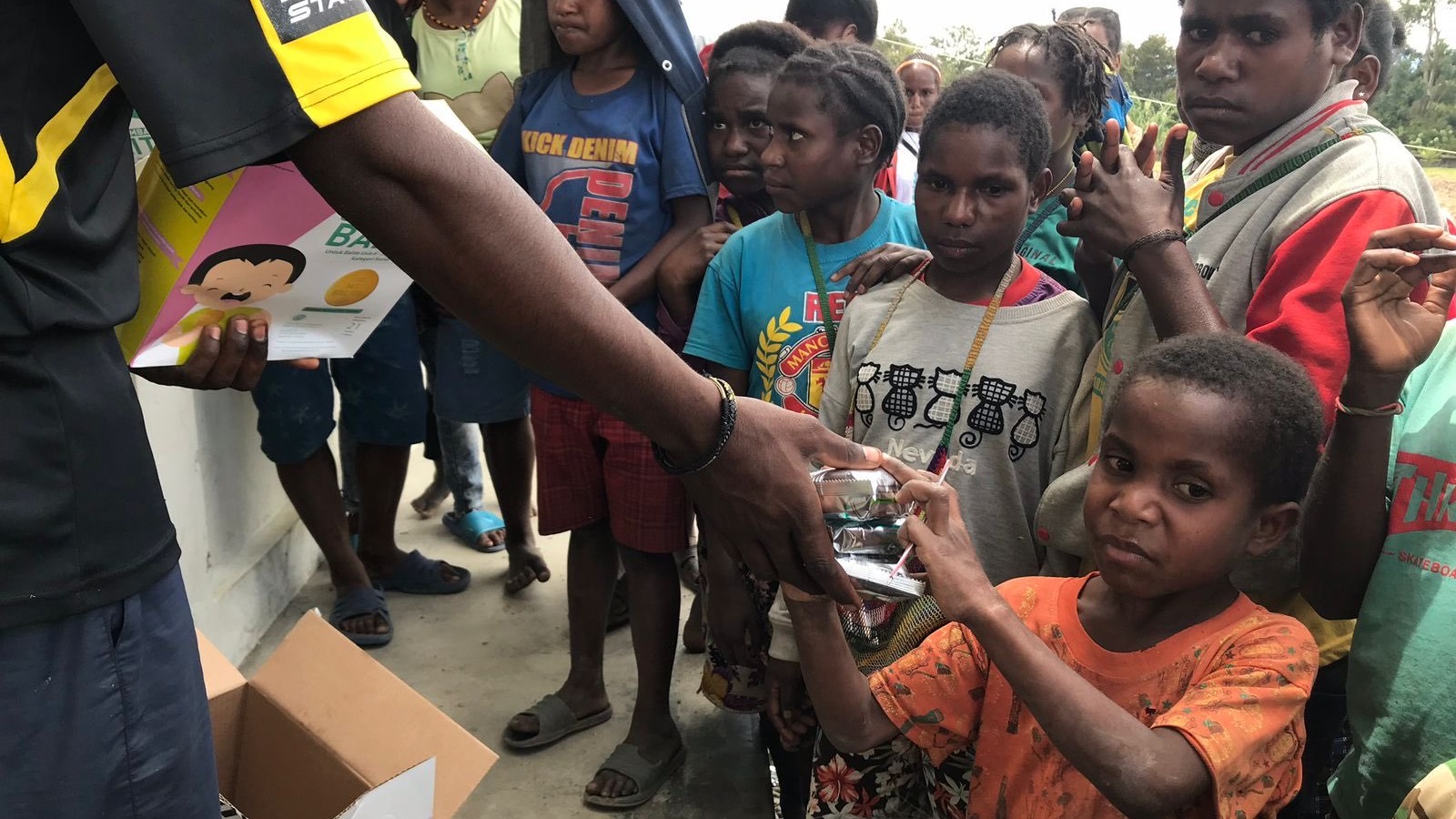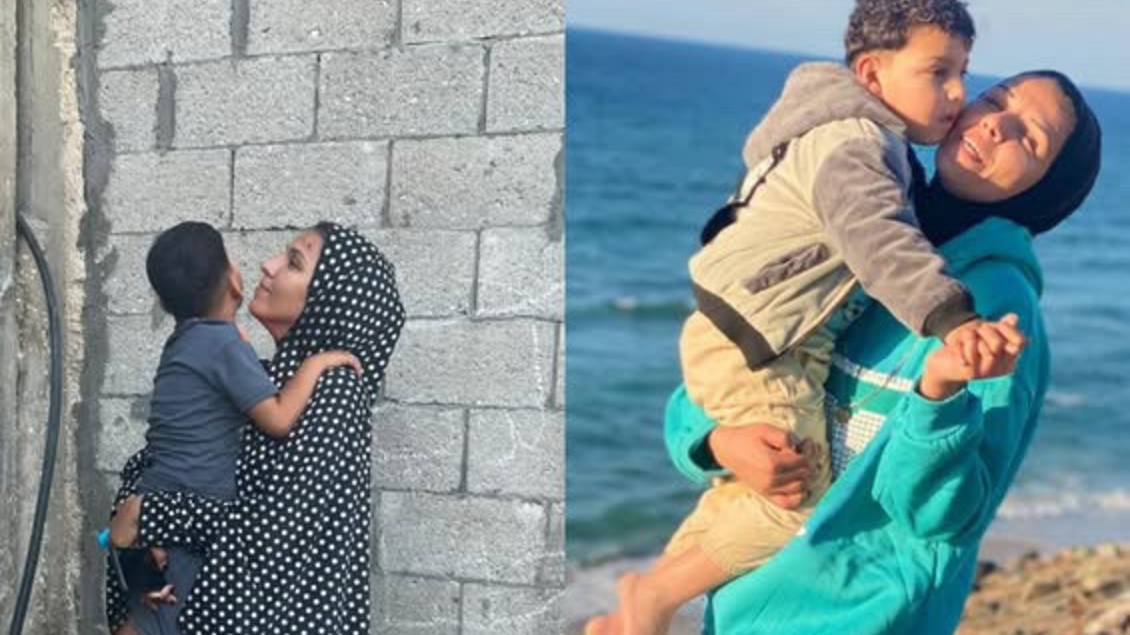Community Resilience Initiative: IDP and Refugees
Australia
Little is known about how Indigenous Peoples’ of Papua adapt to the escalation and de-escalation of violent conflict.
More than 60,000 internal refugees in the West Papuan highlands, as well as many thousand residents fled their homes in recent years due to an escalation in the prolonged armed conflict between the West Papuan Independence Fighters (OPM-TPN) and the Indonesian military (TNI). This conflict has created significant and multi-generational experiences of trauma. Thus far, the Indonesian government’s response and the support provided to these people is greatly lacking.
People from Nduga, Puncak, Intan Jaya, Maybrat, Pegunungan Bintang and Yahukimo are being displaced from their homes as a direct result of the state colonial policies.
Their experience of accessing justice during and after conflict is far from near.
The inaction by the central government, let alone the absence of independent media reporting and human rights advocacy, limits humanitarian responses and widens the lack of recognition of the internally displaced person (IDPs) and their specific needs as victims of conflict.
It is only inevitable that many will be motivated to join the guerilla freedom fighters in the jungle or the militant groups in cities across West Papua, thus continuing the cycle of conflict and trauma.
Many of the IDPs are women and children managing to survive this conflict.
They have developed community resilience in accordance with traditional indigenous knowledge, but with limited support and understanding as Indigenous Peoples and victims of state policies.
The Community Resilience is a Papuan youth-led Initiative supported by the West Papua Project, Australia West Papua Association Adelaide and Sydney, as well as Pacific Island Council of South Australia.
https://www.uow.edu.au/the-arts-social-sciences-humanities/research/west-papua-project/
Project Aim: To work in partnership with local volunteer field workers and groups to obtain support in education and training, as well as to conduct field work in affected areas. Education and training are crucial to record local survival mechanisms, and to identify how external assistance can support local wisdom to adapt to the constrained conditions.
The initiative coordinator is Ronny Kareni, who will engage with Papuan volunteers and researchers.
“The condition of West Papua requires allies to work in a practical solid action with Papuans to understand Papua community resilience and increase comprehension of the scale of the problems to maximise ongoing efficiency of humanitarian and development responses,” convener of Tok Pisin at ANU School of Culture, History and Language and University of Wollongong West Papua Project, Ronny Kareni.
Understanding and analysing Papuan’s resiliency during the conflict: escalation and de-escalation is lacking. Therefore the involvement of Papuan researchers will map how indigenous Papuans will adapt with the conflict, including how they can access basic services, and how to strengthen local capacity to survive the non-stop armed conflict in West Papua by working with external relevant parties.
“My fieldwork on local civil society organisations in Papua brought me to meet a prominent activist and coordinator of local volunteers of the displaced Nduga in Wamena. He facilitated meetings and interviews for me with people in Weneroma, Wamena. I could see deep trauma reflected in the eyes of the Nduga IDPs, particularly the children. In one encounter, a boy talked about his future in Nduga. He was left with nothing when his house was burned down in the conflict,” ANU-based researcher conducted fieldwork in West Papua.
We are asking you to donate to this Initiative and to strengthen the capacity of local West Papuan volunteers and organisations.
We have limited black t-shirt in stock.
15x small sizes I 20 medium sizes I 15 large sizes ! 10 XL sizes I
If you would like a shirt please select this in the perk option, in return we will send you our t-shirt. Thankyou for your generosity!
Est. Delivery Date: April 30
-
$3,000.00
Funding Goal -
$0.00
Funds Raised -
0
Days to go -
Campaign Never Ends
Campaign End Method
Product Description
Australia
Little is known about how Indigenous Peoples’ of Papua adapt to the escalation and de-escalation of violent conflict.
More than 60,000 internal refugees in the West Papuan highlands, as well as many thousand residents fled their homes in recent years due to an escalation in the prolonged armed conflict between the West Papuan Independence Fighters (OPM-TPN) and the Indonesian military (TNI). This conflict has created significant and multi-generational experiences of trauma. Thus far, the Indonesian government’s response and the support provided to these people is greatly lacking.
People from Nduga, Puncak, Intan Jaya, Maybrat, Pegunungan Bintang and Yahukimo are being displaced from their homes as a direct result of the state colonial policies.
Their experience of accessing justice during and after conflict is far from near.
The inaction by the central government, let alone the absence of independent media reporting and human rights advocacy, limits humanitarian responses and widens the lack of recognition of the internally displaced person (IDPs) and their specific needs as victims of conflict.
It is only inevitable that many will be motivated to join the guerilla freedom fighters in the jungle or the militant groups in cities across West Papua, thus continuing the cycle of conflict and trauma.
Many of the IDPs are women and children managing to survive this conflict.
They have developed community resilience in accordance with traditional indigenous knowledge, but with limited support and understanding as Indigenous Peoples and victims of state policies.
The Community Resilience is a Papuan youth-led Initiative supported by the West Papua Project, Australia West Papua Association Adelaide and Sydney, as well as Pacific Island Council of South Australia.
https://www.uow.edu.au/the-arts-social-sciences-humanities/research/west-papua-project/
Project Aim: To work in partnership with local volunteer field workers and groups to obtain support in education and training, as well as to conduct field work in affected areas. Education and training are crucial to record local survival mechanisms, and to identify how external assistance can support local wisdom to adapt to the constrained conditions.
The initiative coordinator is Ronny Kareni, who will engage with Papuan volunteers and researchers.
“The condition of West Papua requires allies to work in a practical solid action with Papuans to understand Papua community resilience and increase comprehension of the scale of the problems to maximise ongoing efficiency of humanitarian and development responses,” convener of Tok Pisin at ANU School of Culture, History and Language and University of Wollongong West Papua Project, Ronny Kareni.
Understanding and analysing Papuan’s resiliency during the conflict: escalation and de-escalation is lacking. Therefore the involvement of Papuan researchers will map how indigenous Papuans will adapt with the conflict, including how they can access basic services, and how to strengthen local capacity to survive the non-stop armed conflict in West Papua by working with external relevant parties.
“My fieldwork on local civil society organisations in Papua brought me to meet a prominent activist and coordinator of local volunteers of the displaced Nduga in Wamena. He facilitated meetings and interviews for me with people in Weneroma, Wamena. I could see deep trauma reflected in the eyes of the Nduga IDPs, particularly the children. In one encounter, a boy talked about his future in Nduga. He was left with nothing when his house was burned down in the conflict,” ANU-based researcher conducted fieldwork in West Papua.
We are asking you to donate to this Initiative and to strengthen the capacity of local West Papuan volunteers and organisations.
We have limited black t-shirt in stock.
15x small sizes I 20 medium sizes I 15 large sizes ! 10 XL sizes I
If you would like a shirt please select this in the perk option, in return we will send you our t-shirt. Thankyou for your generosity!
Est. Delivery Date: April 30
| ID | Name | Amount | |
|---|---|---|---|
| 1244 | Listing Agent | [email protected] | |
| 1215 | Listing Agent | [email protected] |







